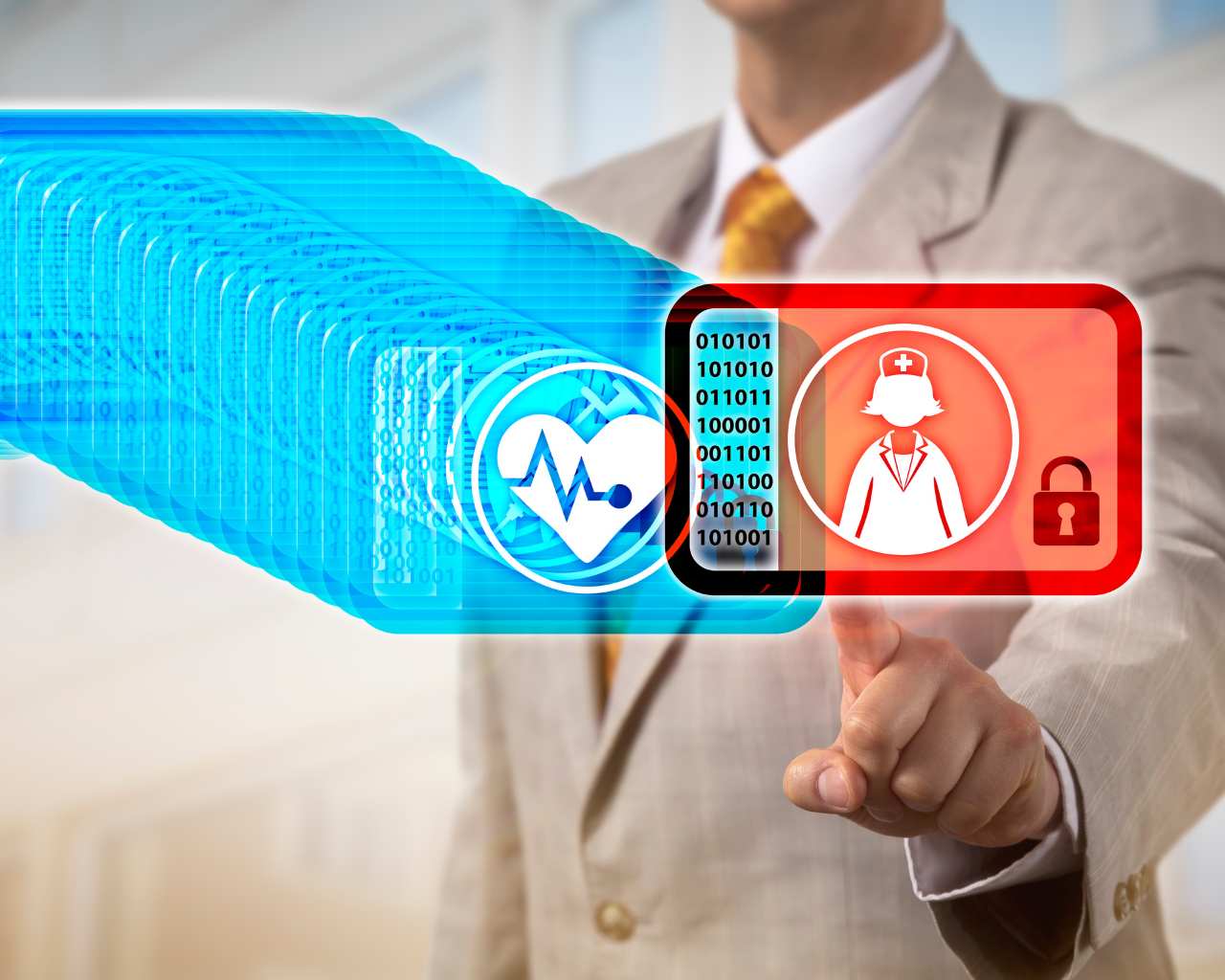IT Consulting | IT Support | Managed Services | New Jersey Computer Support Services

In the digital age, cybersecurity is a keystone within the healthcare industry. With patient records and sensitive data increasingly stored and managed online, the risk of cyber threats has never been higher.
As a healthcare organization, it's crucial that you implement robust cybersecurity measures to protect both your infrastructure and the private information of your patients. Strong cybersecurity practices are not just a matter of compliance, but they are integral to maintaining trust and ensuring the continuity of care.
Effective security protocols must be tailored to address the unique challenges faced by healthcare organizations. Cybersecurity is not a one-size-fits-all solution; it requires a comprehensive approach that encompasses technology, processes, and personnel.
Your organization’s ability to combat threats depends on proactive strategies that blend risk management with cutting-edge technological defenses. Recognizing common threats and understanding how to counteract them should be at the forefront of your cybersecurity plan.
As cyberattacks become more sophisticated, staying informed about best practices is essential. Equipping your staff with the knowledge and tools they need to identify and prevent breaches is just as important as the technological safeguards you put in place.
In the following, you will discover cybersecurity best practices that are tailored specifically for healthcare organizations, designed to help you fortify your defenses and safeguard against the growing landscape of cyber threats.
Understanding Cybersecurity in the Healthcare Sector
Cybersecurity in healthcare is crucial for protecting patient information and ensuring the continuity of medical services. Your attention to evolving threats, vulnerabilities , and strict regulatory compliance can significantly safeguard your organization's integrity and patient trust.
Evolving Threats and Healthcare Vulnerabilities
Healthcare cybersecurity faces unique challenges. Criminals often target your healthcare organization for its wealth of patient information.
Ransomware, for instance, can paralyze your hospital systems, denying access to critical data and disrupting services. Meanwhile, phishing attacks are increasingly sophisticated, often luring your employees into exposing login credentials.
Medical devices and other technology connected to your network expand the attack surface, and legacy systems in many hospitals can increase vulnerabilities due to out-of-date securities.
Typical cyber threats in healthcare:
- Ransomware attacks: Encrypt critical systems and data.
- Phishing scams: Trick employees into giving access.
- Theft: Unauthorized access leading to data breaches.
- AI-driven attacks: Cleverly adapt to security measures.
Regulatory Compliance and Standards
Your healthcare organization must comply with a range of regulatory standards to ensure the confidentiality and security of patient data.
The Health Insurance Portability and Accountability Act (HIPAA) sets the standard for patient information security. The U.S. Department of Health and Human Services (HHS) enforces HIPAA's Privacy and Security Rules, holding you accountable for safeguarding your patient data.
To align your operations with regulations, follow frameworks such as the NIST Cybersecurity Framework:
- HIPAA Security Rule: Protects patients' electronic information.
- HIPAA Privacy Rule: Addresses the saving, accessing, and sharing of medical and personal information.
- NIST Guidelines: Unauthorized access leading to data breaches.
- AI-driven attacks: Help you in managing and reducing cybersecurity risk.
Regular risk assessments are critical to adapt your cybersecurity measures to the evolving landscape and to stay compliant with relevant healthcare legislation.
Practical Cybersecurity Measures for Protection
Protecting sensitive data and networks in healthcare requires a combination of robust security practices and a culture of cyber awareness. By focusing on these aspects, you can shield your organization from cybercriminals and ensure the integrity and confidentiality of patient information.
Implementing Robust Security Practices
Risk Assessments: Regularly conduct risk assessments to identify vulnerabilities in your networks and systems. A thorough assessment allows you to prioritize risks and tailor security solutions effectively.
Security Solutions: Deploy advanced security solutions such as firewalls, network segmentation, and multi-factor authentication (MFA) to protect against unauthorized access. Ensure all operating systems and software are kept up-to-date with the latest security patches.
- Encryption: Utilize data encryption both in transit and at rest to protect the privacy and integrity of sensitive data.
- Access Control: Define strict access controls and permissions to minimize the risk of both external breaches and internal threats.
Patient Care: Integrate cybersecurity practices into patient care by securing telehealth communications with secure messaging and robust encryption protocols.
Networks: Protect your networks by implementing network segmentation. This isolates critical devices and servers, reducing the potential impact of a cyberattack.
Security Controls: Establish comprehensive security controls, including anti-malware tools and intrusion detection systems to swiftly identify and neutralize threats.
Developing a Culture of Cyber Awareness
Training and Awareness: Regular personnel training on cybersecurity best practices is essential.
Your employees should be able to recognize phishing attempts and understand the importance of cyber hygiene.
- Emphasize the potential consequences of a data breach on patient safety and the organization's reputation.
- Use real-world examples to help staff understand the methods used by hackers and cybercriminals.
Continual Learning: Cyber threats are constantly evolving, so it’s crucial for your staff to stay informed about the latest trends in security and risk management.
Personal Responsibility: Encourage each member of your organization to take personal responsibility for cybersecurity.
Remind them that maintaining the security, confidentiality, and availability of sensitive data is part of their role in ensuring patient safety and care.
Secure Your Healthcare Business With a Free IT Cybersecurity Assessment
Although it might not seem like a top priority, conducting a cybersecurity audit can significantly impact the success of your business. By identifying security gaps, you can address them before cybercriminals exploit them.
Integrated Computer Services offers professional cybersecurity audits and a variety of other IT services. With over 20 years of experience, we provide 24/7/365 security monitoring to businesses in the NJ area. Contact the ICS team today to learn more about how we can support your healthcare business.
-
Download our brochure to learn more about us
Download our company overview for more information about us
Download Brochure
We Offer:
- Microsoft Silver Certified Partner
- Dynamic Support | Managed IT
- Cloud Computing for Business





